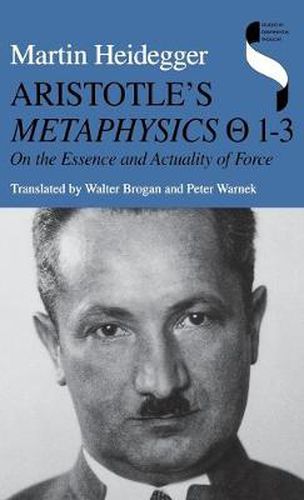Readings Newsletter
Become a Readings Member to make your shopping experience even easier.
Sign in or sign up for free!
You’re not far away from qualifying for FREE standard shipping within Australia
You’ve qualified for FREE standard shipping within Australia
The cart is loading…






Martin Heidegger’s reading of Aristotle was one of the pivotal influences in the development of his philosophy. First published in German in 1981 as volume 33 of Heidegger’s Collected Works, this book translates a lecture course he presented at the University of Freiburg in 1931. Heidegger’s careful translation and his probing commentary on the first three chapters of Book IX of Metaphysics show the close correlation between his phenomenological interpretation of the Greeks (especially of Aristotle) and his critique of metaphysics. Additionally, Heidegger’s confrontation with Aristotle’s Greek text makes a significant contribution to contemporary scholarship on Aristotle, particularly the understanding of potentiality in Aristotle’s thought. Finally, the book exemplifies Heidegger’s gift for teaching students how to read a philosophical text and how to question that text in a philosophical way.
$9.00 standard shipping within Australia
FREE standard shipping within Australia for orders over $100.00
Express & International shipping calculated at checkout
Martin Heidegger’s reading of Aristotle was one of the pivotal influences in the development of his philosophy. First published in German in 1981 as volume 33 of Heidegger’s Collected Works, this book translates a lecture course he presented at the University of Freiburg in 1931. Heidegger’s careful translation and his probing commentary on the first three chapters of Book IX of Metaphysics show the close correlation between his phenomenological interpretation of the Greeks (especially of Aristotle) and his critique of metaphysics. Additionally, Heidegger’s confrontation with Aristotle’s Greek text makes a significant contribution to contemporary scholarship on Aristotle, particularly the understanding of potentiality in Aristotle’s thought. Finally, the book exemplifies Heidegger’s gift for teaching students how to read a philosophical text and how to question that text in a philosophical way.